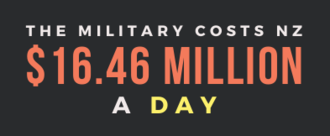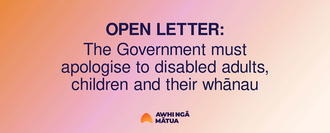-
Protect Our Youth – Ban Vape Shops in the Far North DistrictNgā Take 10 Hei Hainatia i Tēnei Petihana TOP 10 REASONS TO SIGN THIS PETITION 1. Kua piki haere te haurehu a ngā rangatahi—me tū ngātahi tātou te aukati i tēnei mate urutā. Youth Vaping Epidemic - vaping is spreading fast among rangatahi (young people), and it's becoming a serious health issue. Daily vaping among New Zealand teens has nearly doubled in one year, with 25.2% of 18–24 year-olds now vaping daily. Among Māori youth, this rate is even higher at 21.7% [6]. 2. He mōrearea tūturu ki te hauora. The health risks are real — vaping isn’t as safe as purported. Vaping is linked to respiratory conditions, nicotine addiction, and impaired adolescent brain development. Emerging evidence also suggests a potential connection to chronic obstructive pulmonary disease (COPD) and cardiovascular risks (New Zealand Doctor, 2005). [7] 3. Ko ngā kamupene haurehu e pūpuri ana a tātou mokopuna i te mate. Vape advertising is targeting our kids [7] — and our kids are becoming addicted. It looks nice. It tastes nice. It's addictive. It makes you feel good. Flavoured vapes, bright packaging, and social media marketing are deliberately designed to attract young users. Some schools in Northland have reported finding children as young as 11 using vapes [8]. 4. Ka nui te utu ka utaina ki te ohanga ā tōna wā roa. Vaping might look cheap now, but the long-term costs to our health system and communities are massive. Treating vaping-related health conditions will place a growing strain on our healthcare system and taxpayers. Meanwhile, profits flow largely to multinational tobacco corporations. 5. He pānga kino tō te haurehu ki te taiao. Disposable vapes are polluting our whenua, waterways, and oceans — and they’re piling up fast [9]. 6. E whakakāhore ana ētahi atu kawanatanga o te ao hei ārai ēnei taputapu haurehu, me pēnei hoki tātou o Aotearoa . Around the world, governments are stepping up to protect young people from vaping. The Cook Islands has demonstrated bold leadership by banning the sale of vapes and raising the smoking age to 21 [10]. We can take bold measures, too. 7. Ka puta mai ngā toa hoko haurehu ki kō, ki kō, ki ngā wāhi pātata ki ngā kura, ki ngā hapori, ki ngā kainga maha. Hanga tōmuri kē ngā ture o te rohe. Vape shops are popping up everywhere — and the rules aren’t keeping up. As of mid-2023, there were over 1,200 specialist vape retailers registered in New Zealand [11]. Many operate through loopholes such as 'stores within stores,' making regulation difficult and we are now seeing global franchises such as “Shosha” stores penetrate our community. 8. Horekau he ture ā-rohe hei mimiti i ēnei āhuatanga raru ki te hāpori, ki a tātou mokopuna me ngā paru e panaia ki a Papatuānuku. Without local rules, vape shops are popping up everywhere — and our communities, our kids and the environment are at risk : The Far North District Council is currently the only Northland council without a smokefree/vapefree policy for public spaces. This leaves places like playgrounds and beaches unprotected. 9. Ka whakapau taima ngā kaiako te aru haere i ngā take haurehu i roto i ngā kura . Kāhore e pai te haurehu ki te hauora, ki te ako hoki. Vaping in schools isn’t just a health issue — it’s a disruption to education and the school environment. Teachers report vaping as a major disruption, taking time and resources away from learning. 10. Mā te reo kotahi o te hau kainga o Kaikohe o Kaitaia e tīni i ngā āhuatanga tūkino o ngā toa haurehu. Local voices can lead to real change. Let’s make sure our community is heard and protect our rangatahi from vaping. Local voice matters. Our communities should determine the types of businesses allowed to operate here, not corporate interests profiting from addiction. Me tupu pakari a tātou tamariki. Tuhia tō ingoa ki te petihana, āwhinatia mātou ki te tū mō tō rātou anamata. Our kids deserve to grow up safe and strong. Sign the petition and help us stand up for their future. References [1] https://www.phcc.org.nz/briefing/smoking-and-vaping-among-14-15-year-olds-government-action-urgently-needed [2]https://www.nzdoctor.co.nz/article/undoctored/vaping-causes-incurable-lung-disease-groundbreaking-study-shows [4] https://www.1news.co.nz/2024/04/10/unacceptably-high-sales-to-underage-vape-buyers-revealed/ [5] https://www.rch.org.au/kidsinfo/fact_sheets/E-cigarettes_and_teens/ [6] https://www.health.govt.nz/publications/smoking-status-of-daily-vapers-new-zealand-health-survey-201718-to-202122 [7] https://nzmj.org.nz/media/pages/journal/vol-137-no-1589/exposure-to-digital-vape-marketing-among-young-people-in-aotearoa-new-zealand/dc9761c255-1706653375/6317.pdf [8] https://www.nzherald.co.nz/northern-advocate/news/vaping-in-schools-being-stubbed-out-with-homegrown-northland-lessons/GWARQTN6UFAFRMIFTCFQQZDSBU/ [9] https://www.greenpeace.org.uk/news/are-disposable-vapes-bad-for-the-environment/ [10] https://www.rnz.co.nz/international/pacific-news/517488/cook-islands-bans-vapes-smoking-age-raised-to-21-if-you-don-t-smoke-you-still-die-opposition-mp-says [11] https://www.health.govt.nz/system/files/2024-08/RIS-visibility-of-vape-products-and-proximity-of-Specialist-Vape-Retailers-Redacted.pdf Further reading J, Erhabor., Z Yao., Erfan Tasdighi, Emelia J Benjamin, Aruni Bhatnagar, Michael J Blaha. 2005. E-cigarette Use and Incident Cardiometabolic Conditions in the All of Us Research Program, Nicotine & Tobacco Research, https://doi.org/10.1093/ntr/ntaf067335 of 400 SignaturesCreated by Te Wananga o Te Rangi Aniwaniwa
-
Properly staff and resource our HospitalsAotearoa should be a place where people who are in need can access hospitals and get timely treatment, where staff are supported and properly resourced to give quality care. We have the opportunity to ensure that the most medically vulnerable people in our communities are properly supported through their journeys to improved health and wellbeing. New Zealand is facing a health crisis. People are suffering, and some are dying, because they can't access the treatment they need. Our hospitals need to be rebuilt, better resourced and better staffed. New Zealanders deserve a healthcare system that doesn't leave them waiting for months or years just to get the treatment they need; and medical professionals deserve to work in an environment that enables them to deliver the care their patients need and deserve. “We have over a thousand patients that are waiting for either a first specialist appointment or a follow-up appointment. I've never seen that number of patients waiting to be seen." — Dr. Claudia Hays, head of the Obstetrics and Gynaecology Department at Nelson Marlborough Health [1] “Certainly I have seen patients that I believe their disease has gone from curable to incurable during that waiting time." — Dr Suzanne Beuker, senior doctor and consultant for the Urology Department at Nelson Marlborough Health [1] “Someone put my life at risk by changing my diagnosis. This could’ve damn near killed me.” — Daniel Walker, Nelson patient whose nine-week wait likely increased the spread of his testicular cancer [2] The Government needs to build facilities that are fit for purpose for our aging and growing population. Despite the growing crisis, there is a lack of action. We need a bipartisan approach to healthcare that resolves these issues once and for all. The public needs transparency, information and engagement regarding investigations and reports on these issues; and in particular the independent investigation at Nelson Hospital. Sign this petition and together we can hold the government to account and make sure our hospitals are resourced enough to help our family and friends in need.421 of 500 SignaturesCreated by daniel walker
-
Where's the Work?The Where’s the Work? campaign highlights the growing urgency for increased local job availability and accessibility, both during and after studying. While there may be work out there, it is often unsuitable or out of reach for students managing demanding study schedules and financial pressures. Students need flexible, fairly paid employment that complements — not competes with — their education. These roles are crucial to sustaining themselves while pursuing their degrees and, critically, retaining & growing the tertiary-educated workforce. VUWSA believes that if Aotearoa is serious about retaining its talent and revitalizing its communities, then we must invest in our young people — not only with education, but with real pathways to employment. Where’s the Work? is a campaign grounded in the belief that when students succeed, we all benefit. The campaign also aims to champion the mutual value of stronger partnerships between local businesses and students. Students bring fresh ideas, innovation, and energy to the workforce. In turn, they gain practical skills, income, and a sense of belonging in the communities they live and study in. By fostering a reciprocal relationship between students and employers, we’re not just supporting individuals — we’re enriching our city’s social and economic fabric. This is a call for employers, policymakers, and universities to step up — to support tauira in tangible ways, to value their contribution, and to build a future where they don’t just survive here but thrive here.867 of 1,000 SignaturesCreated by Engagement Vice-President
-
VUW: Divest from Fossil FuelsIn 2014, VUW promised to divest from fossil fuels. The Vice Chancellor of Te Herenga Waka announced VUWs “ethical investment stance” and pledged to divest $650,000 invested in fossil fuels. A decade later, evidence reveals that the Foundation still holds significant investments in fossil fuels through third-party investment managers. The 2014 commitment was clearly a false promise. The world that we wish to create is one of climate justice: where communities across the world live and thrive without the threat of flooding or drought, where our needs can be met through sustainable means, and where we can enjoy, without exploitation, the ecosystems that support human life. This future is created by investing in renewable energy and sustainable industries, not fossil fuels. The Foundation should give weight to earth scientists’ “final warning”that “humanity faces ‘devastating domino effects’ including mass displacement and financial ruin” as the planet warms. The UN states that the “world is on the edge of a climate abyss”, and ecologists have said that unless we change course, ecosystem collapse is ‘inevitable’. ExxonMobile, (one of the companies in VUW’s investment portfolio) has known about the devastating effects of fossil fuels since the 1950’s and admitted to systematically undermining the efforts of climate scientists. There are no excuses. Investment in fossil fuels in 2025 is unjustifiable and should be abandoned immediately. With this in mind, we make the following demands of Te Herenga Waka Victoria University and the Foundation board: 1. Disclose the amount of money the Foundation has invested in companies involved in fossil fuel production and distribution. The Foundation has already disclosed their fund managers, one of which oversees the fund “Schroder Sustainable Global Core PIE Fund (Hedged)”. This is of primary concern. According to Mindful Money this fund contains 6.45% fossil fuel companies, including climate criminals such as ExxonMobil and Shell. With the foundation trust overseeing over $100M, dirty investments could make up millions of their portfolio. The VUW foundation must be transparent as this is the starting point for accountability. 2. Divest all money away from companies involved in fossil fuels. The Foundation’s divestment from Israeli government bonds in 2024 demonstrates that making changes to their investment portfolio is possible. We urge the Foundation to take the same rapid action and divest from fossil fuels. 3. Implement a specific exclusion policy with zero tolerance for fossil fuel investments. The Statement of Investment Policy Objectives (SIPO) that governs Foundation investments has failed to prevent unethical investments and can no longer be relied upon. The Board of Trustees must implement a policy to ensure that the Foundation permanently divests from fossil fuels, both directly and indirectly. VUW must follow through with its original pledge and prevent any money being placed into fossil fuel companies again. Organisations signed on: • Te Aka Tauira—Victoria University of Wellington Students’ Association • Ngāi Tauira—Te Herenga Waka-VUW Māori Students’ Association • Climate Clinic Victoria University of Wellington • 350 Aotearoa • Climate Liberation Aotearoa • Oil Free Wellington • Peace Action Wellington • VUW Students for Wellbeing Economy844 of 1,000 SignaturesCreated by Climate Action & Resistance VUW
-
Protect Waipiro Bay: Do not fast-track approve the proposed 200–250 Berth MarinaWhat are some of the impacts of the proposed development? Ultimately, this development must be stopped. A project of this scale—with serious cultural, ecological, and social implications—requires transparent, evidence-based decision-making that respects both the environment and the communities who call this place home. The proposed marina would cause irreversible damage: • To the Treaty partnership between the government, mana whenua and hapū • Destroying areas of cultural harvest significance • Eliminating native wildlife habitat, including that of high-risk species • Altering the ecological and visual landscape of Waipiro Bay • Privatising 9 hectares of public marine space • Extinguishing customary food-gathering areas Shockingly, the application lacks basic environmental assessments, including: • An Ecological Survey • A Hydrology Survey • A Cultural Impact Assessment • A robust Assessment of Environmental Effects (AEE) • Robust community input and engagement Waipiro Bay is not just water—it is our taonga, a source of identity, sustenance, and intergenerational connection. We cannot protect our culture, pataka kai, and wildlife without proper evidence and an inclusive process. This development must return to the proper consent pathway, so the voices of the Bay of Islands are heard. To our community: Let’s stand together to protect our waters, kai sources, wildlife, and future. Sign the petition to stop this harmful development and safeguard Waipiro Bay for generations to come. What is the proposal? A local family with a commercial arm has proposed to build a 250+ berth marina. This marina is intended to service a wide range of vessel sizes. The proposal claims that the marina will benefit the public by: • Reducing traffic at Te Uenga Boat Ramp • Providing potential key utilities (note – these are already available at the Opua marina); • Providing retail services. In summary, the proposal appears to provide mere convenience for a small portion of the community and does not provide a significant benefit at a regional or national level. What is required to approve Fast Track? Under the Fast-Track Approvals Act, the following considerations are made when determining whether to approve fast track of a consent application: • the project is an infrastructure or development project that would have significant regional or national benefits; and • referring the project to the fast-track approvals process – • would facilitate the project by enabling it to be processed in a timely and cost-effective manner; and • is unlikely to materially affect the efficient operation of the fast-track approvals process. In considering whether to refer the application to the fast-track approvals process, the relevant Minister must consider the following: • Whether the project would be inconsistent with a Treaty settlement or a joint management agreement; • whether it would be better dealt with under other legislation; • whether the project has significant adverse effects on the environment; • whether the project area includes land that is considered necessary for a Treaty settlement process. Because Waipiro Bay is more than just a piece of coastline—it’s part of who we are. Here’s why it matters: • Waipiro Bay is a taonga, home to rich marine life, cultural traditions, and a close-knit community. • The Eastern Bay of Islands have been kept free of large-scale commercial development to preserve its scenic beauty and natural value. Maintaining its natural integrity is the best long-term economic and ecological value to the public. • The proposed marina would privatise public water, destroy customary food-gathering areas, and alter the bay forever. • The application bypasses due process, silencing local voices, ignoring Māori rights, and skipping essential environmental protections. • We have the evidence: demand for marina berths is low, and this project offers no proven regional or national benefit. • The sharp rise in boat density will further strain the already over-saturated Eastern Bay of Islands. • The economic benefits will go solely to the developers, with no meaningful revenue such as rates going to Council or the public. Instead, the marina will increase infrastructure costs, adding pressure to already limited Council resources. References https://environment.govt.nz/acts-and-regulations/acts/fast-track-approvals/ https://www.dockland5.co.nz/ https://www.sail-world.com/news/268425/Okara-Marina-Berths-now-available https://data-nrcgis.opendata.arcgis.com/datasets/aquaculture-exclusion-areas-5 https://www.whangareimarina.com/okara-marina https://www.boaties.co.nz/nearest/marinas https://www.boaties.co.nz/marinas/northland https://www.nrc.govt.nz/maritime/moorings/moorings-for-sale-or-rent-listings/ https://www.legislation.govt.nz/act/public/2011/0003/latest/DLM3597250.html https://www.legislation.govt.nz/act/public/2024/0056/latest/LMS943260.html https://www.epa.govt.nz/fast-track-consenting/fast-track-approvals-act-2024/ https://www.nrc.govt.nz/resource-library-summary/plans-and-policies/moorings-and-marinas-strategy/moorings-and-marinas-strategy/ https://www.legislation.govt.nz/act/public/1991/0069/latest/DLM230265.html https://www.bayofislandsmarina.co.nz/superyacht-mooring https://www.xn--morilandcourt-wqb.govt.nz/en MAC-01-01-076: Ngāti Kuta and Patukeha ki Te Rawhiti/ CIV-2017-485-321.14,888 of 15,000 SignaturesCreated by BOI Ipipiri Community
-
Student Sports For All StudentsWe believe every NZ student deserves fair and equal rights to compete in student sports events, including home-schooled students. School Sports NZ excludes home-schooled students from competing in many local, regional, and national events. Diverse and inclusive sport is a core principle within Sport NZ's strategy and we believe its funding allocations should uphold this. In our opinion, student sports should include every NZ student, no matter their legal education path. 📣 Please Sign and Share this Petition! Use social media, community groups, and newsletters to spread the word. Thank you! About Homeschooling Home-schooled students in Aotearoa New Zealand are domestic students regulated by Section 38 of the Education and Training Act 2020 and overseen by the Ministry of Education. Home-schooling families are eligible for a Homeschooling Allowance of between $398–$796 per student, per year from the Ministry of Education. About HESSA The Home Educators Student Sports Association (HESSA) is the national body representing the rights of almost 11,000 home-schooled domestic students to compete in sports across Aotearoa New Zealand. HESSA has a strategic focus on ending the exclusion of home-schooled domestic students from competing in secondary-age student sports in Aotearoa, New Zealand. Other Actions You May Like to Take 🏉 Ask Your Sports Club to Support the Cause Encourage clubs to publicly support inclusion and raise the issue with their governing bodies. 🏉 Contact National and Regional Sports Code Bodies Ask them to advocate for policy changes that allow home-schooled domestic students to compete in student sports at all levels. 📨Write to Your Local MP Personalize your message to explain why inclusion in student sports for home-schooled students matters to you. Ask them to raise the issue in Parliament or with the Minister of Sport and Sport NZ. 📨 Write to the Hon Mark Mitchell, Minister of Sport and Recreation Let him know that you support inclusive student sport and ask him to ensure Sport NZ funding reflects this value. 📨 Contact School Sport NZ and Sport NZ Send respectful emails or letters urging them to review their policies and align with inclusive principles. 📨 Engage with Local Councils and Boards of Trustees Encourage them to support inclusive policies in their local sports events and facilities. References • HESSA Feedback to SSNZ on Eligibility Criteria Review https://www.hessa.org.nz/newsarticle/152183?newsfeedId=2145584 Media • Radio New Zealand Article & RNZ Checkpoint Interview (24/4/2025) https://www.rnz.co.nz/news/national/559030/student-not-given-medal-due-to-being-homeschooled • NZME –NZ Herald & Bay of Plenty Times Article (3/5/2025) https://www.nzherald.co.nz/nz/tauranga-homeschool-student-stripped-of-biking-competition-medal/AVLBZXW5WNHZ5DFA2VHTZ4RGAU/#google_vignette • The Post (18/6/2025) https://www.thepost.co.nz/nz-news/360717151/treating-us-second-class-citizens-young-athletes-take-fight-parliament • Sport NZ – Good Practice Principles https://sportnz.org.nz/media/2012/good-practice-principles-for-the-provision-of-sport-and-recreation-for-young-people.pdf3,465 of 4,000 SignaturesCreated by Mel Ewart

-
Freeze Military Spending & Rethink Foreign PolicyAotearoa is known on the world stage as a progressive, peaceful nation, and our Government should ensure that our policies are consistent with that reputation by putting people and the planet first. Proactive spending on wellbeing for people and the environment would go much further in ensuring peace and security than investing in the large global powers’ wars and aggression. We spent over $6 billion on Defence in 2024/25, while Aotearoa is considered one of the safest countries in the world and there is no threat of military invasion. The extra $12 billion of spending on the military is happening because the US government demands it - not because our country needs it. Focussing on a “combat-ready” military with soldiers and weaponry doesn’t address the real threats to our security. A defence force ready for overseas combat cannot stop the emergencies caused by climate change, pandemics and earthquakes; or encroachment on fisheries; trade tariffs; cyber attacks and lone-wolf terrorism. We need to reconsider our place in the world and focus on these realistic existing threats. Our small, isolated country will only be in danger of attack if we are locked in with a major military power that’s threatening another major power. We can be a much more effective voice for a peaceful world if we become a non-aligned country. Meanwhile, essential public services in healthcare, education and social welfare have been defunded, resulting in growing distress and increased inequality, with negative effects on vulnerable citizens. Defence cost us $16.46 million a day [1] in 2024-2025. Consider a few examples of what that level of defence funding could be spent on instead [2]: • Midwives: one day’s worth of defence spending could pay 174 midwives for a year. • School teachers: one day’s worth of defence spending could pay 211 teachers for a year. • Hip replacement operations; public hospital: one day’s worth of defence spending could provide 890 hip operations. • Free prescriptions: less than two days’ worth of defence funding could pay for free prescriptions for everyone for a year. • Hospitals: with one year’s worth of current military spending we could build two new hospitals and have money left over. Instead of funding militarisation, we propose: Non-alignment. A policy of non-alignment is protective: if we are not militarily aligned with any major world power, we are less likely to be caught up in overseas wars or subject to attack. Non-alignment means we could protect our trading relationships without having to fight other people’s wars. Invest in civil defence/ emergency management. Emergency preparedness requires resources, transport, communications, and trained leadership. Community-based civil defence builds community in quiet times and provides local support after earthquakes or during severe weather events. Maintain adequate shipping, aircraft, and technology to protect fisheries and support Pacific neighbours. Surveillance ships and planes do not need to be armed for war. Support and aid to Pacific island nations is important to Aotearoa New Zealand as a good Pacific neighbour. Show leadership for peace. As a small and geographically isolated country, we have shone in international affairs through moral leadership, from the setting up of the United Nations to our principled Nuclear-Free policy and our successful “guitars not guns” peacekeeping role in Bougainville. Now is the time to renew our independent foreign policy and focus on the real threats to our security. Please sign and share this petition with your family and friends. Together we can develop a truly independent foreign policy, ensure sensible spending and lead the world in peace-making. Footnotes: 1. If the new spending goes ahead, that number will be closer to $25 million a day, roughly $9 billion a year. And the government said that is just the beginning. 2. Data Sources: 1. NZ Budget 2024-25 Vote Defence and Vote NZ Defence Force; Parliamentary Library. 2. Salaries derived from careers.govt.nz 2024. 3. Hip replacements: estimated hospital cost data from: Te Whatu Ora/ Ministry of Health: “Publicly funded casemix hospitalisations 2021/22” (latest available in 2024) 4. Prescriptions, hospital building: media sources, 2024 Further reading: • Spend on inequity and the climate crisis, not soldiers’ wargames. Newsroom 6 June 2024 • Defence Force spend-up: Who is it meant to protect us against, and other questions, RNZ 8 April 2025. • Richard Jackson: Does NZ really need its defence force? RNZ 2 December 2023. • New Zealand abandons Indigenous Rights and Pacific priorities in foreign policy By Nina Hall and Rhieve Grey, The Diplomat 21 December 2023. • Is our investment in defence value for money? Newsroom 27 May 2024 • Just Defence www.justdefence.org442 of 500 SignaturesCreated by Just Defence
-
We want a new Waste Management and Minimisation Officer not a new ‘Solid Waste Engineer’The Far North region lags behind other regions of Aotearoa New Zealand in reducing waste: we need to do more, and that starts with getting the correct title and responsibilities for this important role! FNDC understandably works to reduce their costs yet rising waste levels cost ratepayers in other ways. We seek greater focus at Council to align with the requirements of the FNDC Long Term Plan on waste minimisation as well as the recommendations of the 2024 council-sponsored Community/Iwi Working Group on Waste. The currently advertised name of ‘Solid Waste Engineer’ is inappropriate: engineering is not a major part of this role and this title fails to reflect the job we need someone to take responsibility for at Council: to manage AND to minimise waste. Now the incumbent is leaving the position, it is a perfect opportunity to rescope and rename the role. Community, Iwi, and Farming and Business-led waste minimisation initiatives need support from someone in Council whose job title makes them instantly recognisable as the first point of contact. The current Position Description for this advertised role lacks a focus on waste reduction: out of 18 Key Accountabilities, there is only one imprecise and very general reference: ‘Initiate Waste Minimisation planning and implementation.’ We believe this is insufficient, and request the Position Description to be amended to include specific reference to: - Providing advice with regards to waste and litter minimisation, recycling and resource recovery, particularly as they relate to communication and education. - Supporting community projects and initiatives to assist Far North communities and to recognise businesses and organisations committed to reducing waste to landfill and litter in the natural environment - Encouraging and supporting the FNDC organisation and its contractors to achieve Ecostar certification to highlight their role modelling of waste minimisation and resource recovery - Supporting and assisting with the implementation of relevant education actions for waste and litter minimisation and resource recovery strategies and plans. In common with other councils across Aotearoa NZ, FNDC has the responsibility to create and implement 5-yearly Waste Management & Minimisation Plans and the title, ‘Waste Management and Minimisation Officer’ will align with similar roles in other councils. References https://zeil.com/jobs/new-zealand/solid-waste-engineer?gj=ivfhp https://localelections.co.nz/wp-content/uploads/2016/06/FNDC-Long-Term-Plan-2015-2025.pdf https://zerowastegranny.com/2018/01/06/2018-resolution-for-our-mayor/ https://www.ecosolutions.org.nz/pages/about-the-ecostar-programme178 of 200 SignaturesCreated by Jane Banfield
-
Fairness for the Hospitalised: Stop Benefit Cuts After 13 WeeksWe envision a compassionate and equitable society where individuals who are hospitalised can recover without financial hardship or fear of losing their benefits. In this future, we prioritise the dignity and wellbeing of all members of our community, ensuring that support systems are fair, sustainable, and centered on shared values of empathy and care. By making this change, we build stronger, healthier communities where everyone has the opportunity to thrive. Take a look at the Organisation's in support of this petition & advocating for change! Rhiannon, a 34-year-old suffering from Myalgic Encephalomyelitis/Chronic Fatigue Syndrome (ME/CFS), was bedridden in Wellington Hospital for months. Her benefit was reduced from $480 to $56.58 per week, leaving her unable to afford essential medications and personal items. This automated reduction process exacerbates the suffering of those who are too unwell to advocate for themselves. It affects anyone on a benefit and hospitalised for over 13 weeks, unless they have a partner and child, or are a veteran. Even when patients are gravely ill and hospitalised, their financial obligations do not pause. Mortgages, rent, insurance premiums, subscription fees, and other living expenses continue to accumulate. For those in shared accommodations, contributions toward utility bills must still be made—unlike individuals living alone, who might have the option to disconnect services temporarily. Additionally, many patients as severely unwell as Rhiannon are unable to consume hospital-provided meals. Instead, they rely on liquid nutrition and essential supplements, leading to ongoing expenses even while confined to the hospital. Patients like Rhiannon often face the additional burden of purchasing essential medications privately because the hospital system fails to provide the necessary prescriptions. This issue arises when hospital doctors either misattribute complex medical conditions to psychological causes or fail to fully understand associated conditions, leading to the omission of crucial treatments. In many cases, these medications are consistently prescribed by GPs who recognise and address their patients' needs. However, the lack of alignment within the healthcare system forces patients to bear unnecessary financial and health burdens for treatments that should be accessible through public healthcare. Cutting benefits under such circumstances only exacerbates an already untenable situation, as $56.58 per week is grossly inadequate to cover even the most basic living and medical expenses. You can find out more about Rhiannon’s story here: https://www.renews.co.nz/cant-afford-to-be-sick-womans-benefit-cut-to-55-because-shes-in-hospital/ but she is not alone. This happens to anyone on a benefit, after 13 weeks in hospital. This is unacceptable.2,389 of 3,000 SignaturesCreated by ANZMES The Associated New Zealand ME Society
-
Petition: Protect Public Safety and Psychology in New Zealand1. Risk to Public Safety: Psychology is a highly skilled profession requiring extensive postgraduate education, clinical training, and supervised practice. A one-year training programme following an undergraduate degree does not equip individuals with the necessary clinical competence to assess and treat individuals with mental health conditions safely and in accordance with evidence-based treatment recommendations. • Undergraduate psychology degrees in New Zealand are primarily research- and theory-focused, without substantial interpersonal or clinical skills training. • Insufficient training may lead to mismanagement of people with serious conditions such as suicide risk, psychosis, eating disorders, and personality disorders. • Associate psychologists may lack the ability to engage in essential therapeutic skills, such as validation, open-ended questioning, setting boundaries, and recognising when a case is beyond their competence. • Although there is some talk of associate psychologists seeing less complex people, it is extremely difficult to assess complexity at face value and there are indications that people in the proposed role will work across the range of complexity people face. 2. Lack of Appropriate Supervision: There is no clear reassurance that associate psychologists will be supervised by registered psychologists, despite the protected title of "psychologist." • Many psychologists in New Zealand are already stretched thin with high caseloads and complex cases, making adequate supervision difficult to guarantee. • There is no commitment that associate psychologists will work in teams with psychologists, further diminishing the structured, evidence-based, and ethically sound care that characterises our profession. • There is significant risk to the associate psychologists themselves when they work in mental health without extremely high levels of support and training. They can be taken advantage of, including financially as they may be seen as “cheaper” to hire. • If supervision is delegated to other disciplines, this raises serious ethical and professional concerns about the appropriateness and oversight of psychological interventions delivered by under qualified personnel 3. Erosion of Professional Standards and Public Trust: The introduction of associate psychologists risks confusing the public about the expertise and qualifications of those providing mental health care. • Without stringent oversight, the reputation of the psychology profession may be compromised by individuals practising beyond their competencies. • Members of the public seeking psychological services may not fully understand the difference between a psychologist and an associate psychologist, potentially receiving suboptimal care. • The title “Associate Psychologist” risks misleading the public and diminishing the professional standing of fully qualified psychologists. If the intention is to create a support role within mental health services, alternative titles such as Mental Health Support Worker, Wellbeing Practitioner, or Therapy Assistant could be used. These titles would more accurately reflect the level of training and scope of practice, without creating confusion or undermining the qualifications required to practise as a psychologist. 4. Threat to Psychology Workforce Sustainability: There has been no commitment from Health NZ that associate psychologists will not be used to replace clinical psychologists or fill vacant psychologist FTEs in the public sector. This raises concerns about cost-cutting measures that devalue the profession and create a long-term workforce crisis. • Psychologists provide evidence-based treatments that are proven to be cost-effective in the long term, reducing the burden on the healthcare system by preventing relapse, hospitalisation, and chronic mental health issues. • In contrast, associate psychologists with limited training may not have the expertise to deliver these interventions effectively, potentially leading to poorer outcomes, increased service demand, and higher overall costs. • Practising psychologists play a critical role in training and supervising the next generation of psychologists, ensuring a sustainable and competent workforce. Weakening our profession by introducing underqualified roles could undermine this vital function. • Australia recently abandoned a similar proposal following strong opposition from professional bodies, citing concerns about patient safety and the devaluation of the psychology profession[7]. New Zealand must learn from this and reconsider the implementation of a role that could have long-lasting negative consequences for mental health care in this country. The UK has two distinct roles relevant to this discussion: “Assistant Psychologist" and "Clinical Associate in Psychology" (CAPs). The role of “assistant psychologist” is not a separate scope of practice but rather a transitional role intended to provide work experience before higher levels of training. The role was never intended to provide direct, unsupervised clinical care or to serve as a substitute for registered psychologists. New Zealand risks misapplying this concept in a way that compromises the quality and safety of mental health care. Additionally, the UK requires assistant psychologists to receive at least 90 minutes of supervision per week, ensuring they do not work beyond their competencies. Their role is explicitly a stepping stone to further professional training rather than an alternative workforce solution. Clinical Associates in Psychology (CAPs) in the UK require an honours degree, an 18-month applied Master's training programme, restricted scope of practice, and intensive supervision. Notably, they do not hold the title of "psychologist." In contrast, the New Zealand proposal suggests a lower entry requirement (bachelor's degree), shorter training (12 months), broader scope, and the protected title of "psychologist." The risk of misapplying this model in New Zealand is significant, potentially compromising quality and safety in mental health care. We envision an Aotearoa that is safe and welcoming for vulnerable people, where people who need support can feel safe and contained by experienced psychologists. Unfortunately, the Government’s proposal falls significantly short of reaching that goal. By signing our petition, you are adding to a chorus of voices that tells the Government that we can do better, for all of our benefits!1,899 of 2,000 SignaturesCreated by Kumari Valentine
-
Clean Air in SchoolsCovid can have substantial impacts on peoples’ health. Although Covid initially enters the body through the respiratory system, it can affect virtually every bodily system and organ. There are no advantages to catching Covid. Every infection increases the chance of serious damage to the body.[1] Studies show that at least 10% of all Covid infections result in Long Covid, including in children.[2] Long Covid symptoms include fatigue, brain fog, dizziness and headaches, sleep disruption, and anxiety which impact children's school performance and attendance.[3] In particular, too many children and educators are still getting Covid. We shouldn’t be so careless with our taonga. Teachers are most at risk of catching Covid.[4] Too many have had to leave the profession due to Long Covid. Schools are the best place to start deploying better tools to manage airborne diseases, which also include measles and whooping cough. When children acquire infections, they carry them home to their families and into our communities. Māori, Pasifika and disabled people have been especially hard hit by Covid,[5] and we know government response that devolves power to those communities works best. Under Te Tiriti o Waitangi, Government has a responsibility to uphold working with Māori in partnership and that is not happening with the Covid response anymore. We know a number of effective strategies to reduce Covid’s spread and it is not acceptable to continue our hands-off approach to Covid. Schools that have taken action regarding clean air have found reduced transmission, healthier school communities, and better student achievement.[6] The three main areas where we can make the biggest impact collectively are: clean air, vaccination, and supporting the health needs of school and ECE communities. A healthy clean air classroom should have five air changes per hour with the exhaled air in the room being replaced with fresh air.[7] Having access to CO2 monitors and portable air cleaners plays a critical role in achieving this. We can use CO2 monitors to check the indoor air quality and respond by opening windows and doors and/or deploying HEPA air filters and HVAC systems. Vaccines have played an important part in combating Covid worldwide. At the moment, the New Zealand government allows only very limited access to regular Covid boosters even though it has been shown that updated vaccines decrease the risk of infection and long-term effects like Long Covid.[8] Isolation and rest protect afflicted individuals and break chains of transmission. People need access to tests as well as adequate sick leave for themselves and to care for family members. With these sorts of measures, we can decrease absences, keep educators and children healthy, and even improve academic achievement. For more information about the importance of clean air in schools, visit the ACA website. Sources: 1. https://www.phcc.org.nz/briefing/long-covid-update-threat-continues-demand-strong-response 2. https://www.nature.com/articles/s41579-022-00846-2 3. https://publications.aap.org/pediatrics/article/153/3/e2023062570/196606/Postacute-Sequelae-of-SARS-CoV-2-in-Children 4. https://pmc.ncbi.nlm.nih.gov/articles/PMC7615205/ 5. https://www.wgtn.ac.nz/news/2023/01/covid-19-impacts-worse-for-maori-pasifika-and-disabled-people-study-finds 6. https://www.nber.org/system/files/working_papers/w30061/w30061.pdf 7. https://www.cdc.gov/niosh/ventilation/prevention/aim-for-5.html 8. https://www.health.govt.nz/system/files/2024-09/prop-028-report.pdf Organisations and individuals supporting this campaign: https://raisely-images.imgix.net/aotearoa-covid-action/uploads/signatories-jpg-d177d4.jpg Aotearoa Covid Action ActionStation NZEI Te Riu Roa PPTA ANZMES Long Covid Kids Long Covid Support Aotearoa Awhi Ngā Mātua Complex Chronic Illness Support Disabled Persons Assembly NZ ME Support 350 Aotearoa End ASH Now The Air Quality Collective Professor Michael Baker - Director, Public Health Communication Centre Dr Amanda Kvalsvig MBChB, MRCPCH, MSc (Epidemiology), PhD (Epidemiology) John D Potter MBBS PhD, Professor, Center for Public Health Research, Massey University, Wellington Dr Matire Harwood PhD, FRNZCGP, Toi Whanau Health Ltd. Dr Gary Payinda Dr Ed Hyde Dr David Galler Dr Stuart Ekdahl MBChB FRNZCUC Dr Siouxsie Wiles MNZM PhD (Microbiology) Dr Anna Stevenson MBChB, FNZCPHM2,479 of 3,000 Signatures
-
The Government must apologise to disabled adults, children and their whānauSigned by Awhi Ngā Mātua, IHC, Disabled Persons Assembly NZ Inc, Parent to Parent, Disability Connect, Mental Health Foundation of New Zealand, NZEI Te Riu Roa, Parents of Vision Impaired PVINZ, iFUNZ, NATINA Neuroscience And Trauma Informed Network Aotearoa, ASD Dads NZ, VIPS Equity in Education, Flying Kites, Empower Learning Project, Inclusive Performance Academy, Fragile X New Zealand, NZ Disability Advisory Trust Inc, United Community Action Network (UCAN), Te Aka Tauira - Victoria University of Wellington Students’ Association, Auckland Action Against Poverty, United Community Action Network, Project Gender, ActionStation, The Angelman Network, Fairer Future Collaboration, Aotearoa Liberation League, Little Shadow, Te Kura o Hāpuku, System Change Aotearoa, NZ Disability Advisory Trust Inc., Supporting Diversity, Whakaata Tohu Tohu | Mirror Services, Justice and Peace Commission Catholic Diocese of Auckland, Standards and Monitoring Services, Chrome Collective Charitable Trust, Willow Corner, Kahu Hurihia Durie Family Trust, Barbarian Productions Ltd., Pōneke Anti-Fascist Coalition,Lead Aware NZ, Northern Monthly Meeting, the Auckland and Northland branch of the Religious Society of Friends in Aotearoa/ New Zealand (Quakers) Te Hāhi Tūhauwiri.11,711 of 15,000 SignaturesCreated by Awhi Ngā Mātua

.png)




%20(1024%20x%20576%20px)%20(2).png)
.png)



.png)
